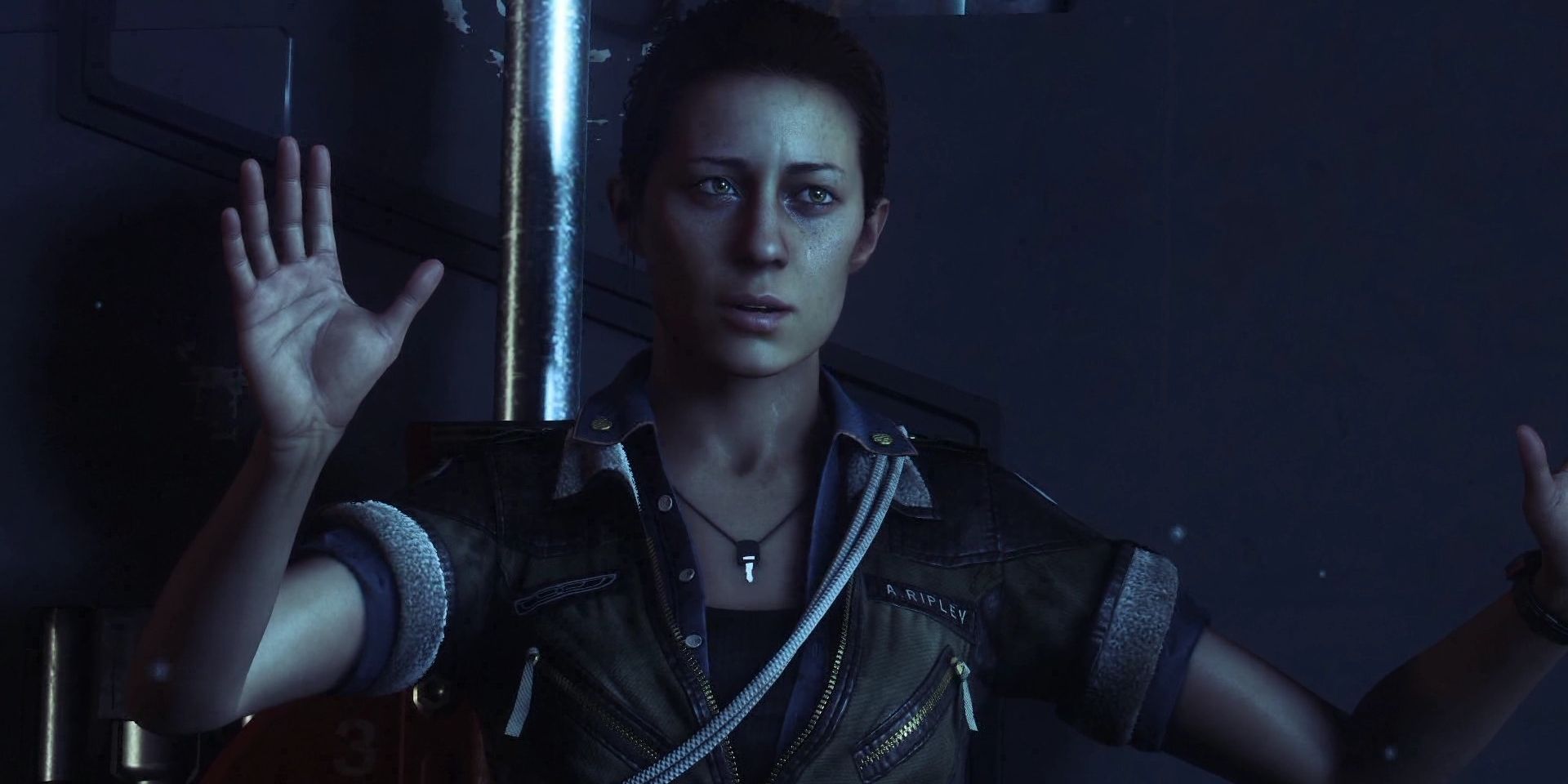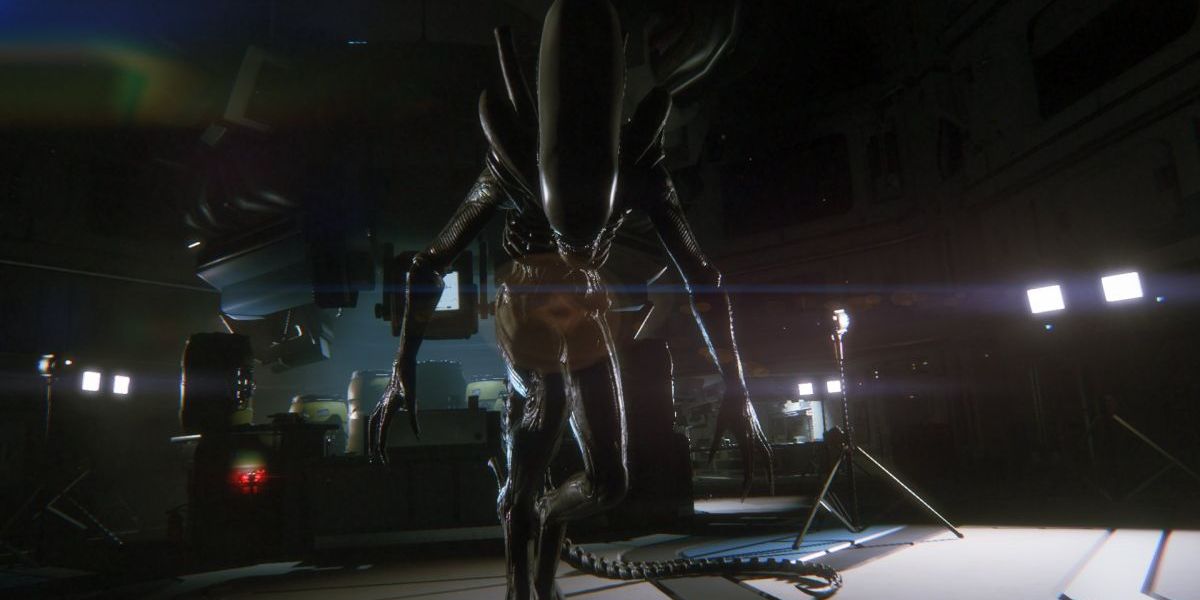The Alien franchise is one of the most unique entries in the horror and sci-fi genre. At their core, the films explore the human nature to meddle with the unknown and how it can lead to dangerous results. Personifying those results is the Xenomorph, a creature perfected by evolution that can survive in space and only seeks to feed and breed. Compounding the terrifying aura these beings emanate is the cold atmosphere of space. For decades, the franchise has had a hard time creating a game that could adequately capture the phrase, "In space, no one can hear you scream." But that all changed when Sega released Alien: Isolation in 2014.
Set 15 years after the original Alien, Isolation is a first-person survival horror title that puts players in the shoes of Amanda Ripley, the daughter of Ellen Ripley. Never giving up hope on finding Ellen, Amanda travels to Sevastapol, a space station holding the last known flight recorder left by her mother. However, what she finds is a station in disarray with a Xenomorph stalking its halls. On consoles, the game uses many unique functions to immerse the player in an environment that feels realistic. It was recently announced that a mobile port of the game is on its way, but the atmosphere that made the game such a hit may be hindered by the transition.
When playing Alien: Isolation on consoles, there is an immediate shift in the mind from the real world to the game's world. Players are taken to the distant future created in the first film, where lo-fi technology can mean the difference between life and death. The game also features little to no sound, making the ambient noise equal parts a soundtrack in itself and the only way to know what is happening in the immediate area. The tone within the atmosphere can change quickly, and a slight vibration followed by the sound of the motion detector, breaking the silence, is enough to startle even the most hardened player.
Isolation demands a player's full attention, and if that atmosphere is broken, an important moment can be missed, leading to an untimely death at the hands (or teeth) of a Xenomorph. Players can also use their controller to peer around objects. However, the more exposed a player is, the more likely they can be spotted by the synthetic androids, the Xenomorph or humans on Sevastapol. When these factors are combined, the result is a near-perfect replication of the atmosphere that made the film franchise so beloved. To successfully translate that into a mobile game would require the same attention needed in the console version. Just by the very nature of how mobile gaming works, though, this could prove problematic for players to achieve.
Considering smartphones are often used for gaming on the go, it's hard to find the time or place to devote the attention needed to play Alien: Isolation. Playing in a noisy environment, surrounded by people or just in a place where your attention is divided can easily ruin the game's moody, immersive horror experience. Add on to that the limitations inherent to mobile gaming's control schemes. Gameplay will have to be reworked or condensed to account for the lack of buttons, something that can make or break an interaction-heavy experience like Isolation.
Alien: Isolation is a unique experience that embraces immersion by creating a scary atmosphere through to the circumstances of the story rather than the location itself. Coupled with the innovative controls, the title feels more like a living entity than a game, making its inhabitants even more intimidating. Playing it on mobile will get more eyes on the title, but in doing so, the game's atmosphere will lose key factors that make the experience so memorable.



